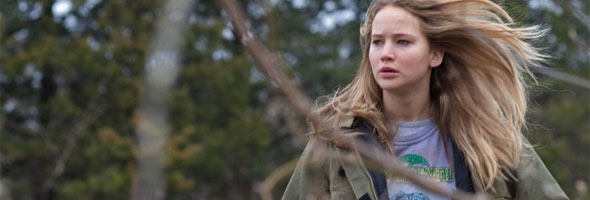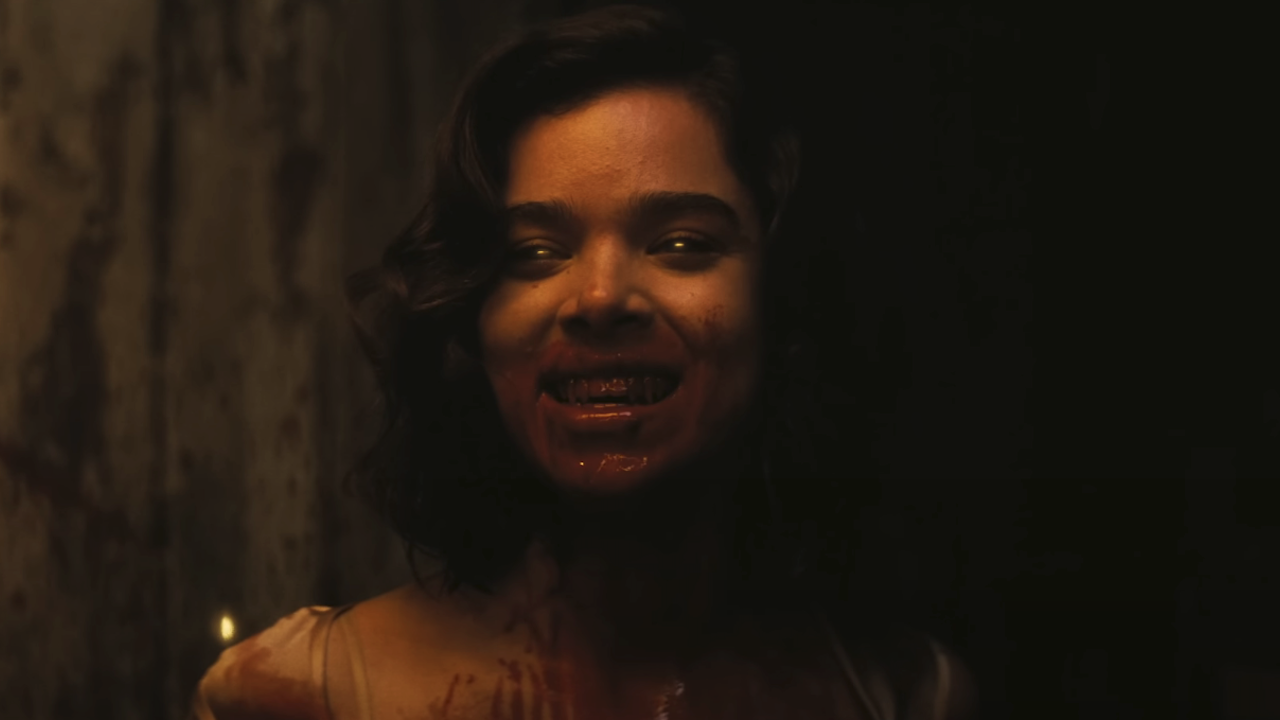How far would you go to save your family? Sure, sure, you’d keep your crazy, ageing mother at home to avoid the trauma of an assisted living facility. You might even offer to do the laundry and keep things functioning in her wake. In a dire need, you might help pay bills or watch over younger siblings when your parents weren’t around. But would you shoulder your way into a drug den to find out truths you may be better off not knowing? Would you willingly get the shit kicked out of you by those who should care the most? Do these even seem like things you’d be able to watch on film? You’ll see them in Winter’s Bone.
Ree Dolly (Jennifer Lawrence) is a seventeen year-old girl from the Ozarks, who bravely cares for two younger siblings as her mother fades slowly into crazy and her father shirks responsibility. Her dad has been summoned to court on charges of cooking meth. His court date approaches, nobody has seen him in weeks, and most of the community thinks he skipped town to avoid jail. Yet Ree feels differently and it becomes important that he’s found when she learns her pop has put their home up to cover his bond. Thus begins Ree’s journey through the branches of her family tree, set against a backdrop of disturbed wasteland, to find her father and convince him to show up for his court date so her family isn’t left completely destitute.
Ree Dolly’s foil, a woman named Merab, is played by Dale Dickey, who until recently I only knew as Patty the Daytime Hooker on My Name is Earl. But in Winter’s Bone Patty the Daytime Hooker steals the show. Together Ree and Merab are as alike and unalike as two tributaries leading into the same mouth. Each woman is strong in her own way—Ree because she has not yet been broken, and Merab because she has survived—in a world where their men make their decisions for them. These are men like Ree’s uncle, Teardrop (John Hawkes), a man who has given up on himself and become an empty cell of hate and aggression. He’s learned to use that aggression to out-will nearly any man. These are men like Thump Milton (Ronnie Hall), who use meanness as a leash to reign in as much power as possible. Ree faces them in her own way. At one point she timidly tells her Uncle Teardrop, “You always have scared me.” “That’s because you’re smart,” he answers, but it’s more of a warning than a compliment.
Winter’s Bone loses momentum only once. As Ree attempts to solve her family’s financial problems, we learn there’s a solution. She could simply sell the timberland behind her home to pay the bills. After an odd, completely out of place dream sequence involving burning forests, the rise of civilization, and some cute squirrels, Ree decides she cannot sell the timber. This is less a problem of plot than execution. To sell the wood or not to sell the wood is a reasonable moral question, but for a film which consistently embraces the brutal, honest humanity of everyday living, devolving into black-and-white avant-garde dream sequences comes off as dishonest and foreign. What Winter’s Bone never really explains is the importance of the timberland to Ree’s family. The timberland is more than the nature surrounding the Dolly home, it’s land to hunt and hard-to-find, dense wood for cultivation. It would be like ripping out your heart and then expecting your circulatory system to still function. Yet the selling of the timberland becomes a point of confusion because it seems like a quick fix, when it isn’t, and the portion of the film surrounding this small point could have been left to the wolves.
The real triumph of Winter’s Bone is not its acting, which is great, nor it’s sharp script, written in part by director Debra Granik and Anne Rosellin. The real achievement here is the price tag, a movie that cost only two million dollars to produce, and all of it spent on quality. A limited budget meant hiring actors like a woman known mostly for playing a silly prostitute but here capable of dominating a room full of people and stealing scenes. Or it means giving a role to a young fairly unknown actress with the ability to make a crowd cry. Winter’s Bone is not a miracle, it’s hard work, and proof that great movies can still be made without resorting to gimmicks like 3D and green screen to lure people in.
Winter’s Bone is not another indie movie like The Kids are Alright or Squid and the Whale, about distant, confused people creating their own problems. Instead this is a movie about a world that is right fucking nearby, where there are problems larger than petty trivialities, where people know their place, where there is honor in the muck and the mire. It’s a place where the Hatfields and the McCoys could reign supreme, and where Winter’s Bone chooses to place its audience. It may not be as pretty or as comfortable as suburbia, but maybe that’s why when the ultimate payoff does come, it feels entirely deserved.











